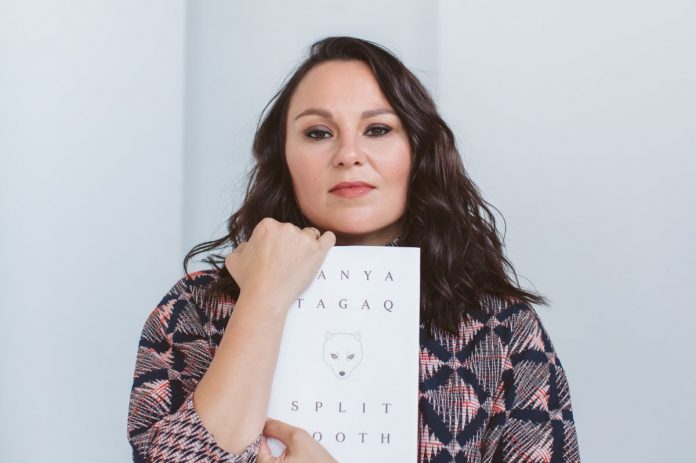By: Alison Wick, Arts Editor
Before it was even officially released, Tanya Tagaq’s debut novel Split Tooth was already on the longlist for one of Canada’s most prestigious literary awards, the Scotiabank Giller Prize. The Inuk musician had already made a name for herself as an accomplished experimental vocalist and throat singer over the last two decades, and her first book was highly anticipated.
The story itself is an enthralling, though often difficult, narrative. The prose beautifully weaves together the stories, imagery, and emotions of life as a young Inuk girl in the North. The book is a complex and sensitive narrative that calls into question what love, pain, and purpose really mean. However, I would give a content warning for the story because this sensory writing can become quite graphic as the narrative describes abuse and trauma.
To describe Split Tooth using the terminology of the Western literary canon is impossible, and wouldn’t really make sense. The book is neither a memoir nor fiction, neither fantasy nor realism. It’s something entirely different that can’t be approached, explained, or understood like traditional English forms of storytelling.
This does not make the book daunting, but rather exciting. I listened to the book on Audible and the moment I finished it, I went searching to find and read the printed version for a new experience of the same story. One of the very first things I noticed about this book was the way that Tagaq uses and pays attention to the opportunities and strengths offered by these different mediums of storytelling, written and oral. You almost need to read the book twice to fully appreciate Tagaq’s talent as a storyteller.
The audiobook is read by Tagaq herself and her training as a singer is clear as she performs each section — not reading a book but telling a story. She changes and morphs her voice and breath as she reads, even incorporating vocalization and throat singing at the end of each chapter — something entirely exclusive to the audio version.
In the printed book, it’s clear that visual aesthetics and tactility have been deeply considered. Jaime Hernandez’s illustrations picture the chapters, the page edges are red, and the hardcover is softly textured — making the reading a more visceral experience.
Overall, Split Tooth is a stunning book of prose that explores the depths of human experience and beyond. Penguin Randomhouse, the publisher of Split Tooth, describes it best: “Haunting, brooding, exhilarating, and tender all at once, Tagaq moves effortlessly between fiction and memoir, myth and reality, poetry and prose, and conjures a world and a heroine readers will never forget.”
Among its other nominations and wins, Split Tooth is nominated in the category of Published Prose at the Indigenous Voices Awards this year. You can also purchase a hardcover copy on Burnaby campus at Iron Dog Books (which will return to UniverCity on June 12).




